Véronique Bohbot, PhD, Researcher, Douglas Institute; Associate Professor, Department of Psychiatry, McGill University
 Véronique Bohbot, PhD, Researcher, Douglas Institute; Associate Professor, Department of Psychiatry, McGill University
Véronique Bohbot, PhD, Researcher, Douglas Institute; Associate Professor, Department of Psychiatry, McGill University
Véronique Bohbot, PhD, is a memory expert. She uses navigation to study different types of memory that depend on distinct parts of the brain. She discovered that individuals spontaneously use different navigation strategies that differ in terms of brain activity, grey matter, hormones, and genotypes. This is important because the literature suggests that reduced grey matter in one of these brain regions, the hippocampus, is associated with increased risk of several neurological and psychiatric disorders such as Alzheimer’s disease.
Véronique Bohbot’s research will help profile the neural activity that occurs in the brain areas that mediate individual navigational strategies, i.e., the hippocampus, caudate nucleus, medial temporal lobe cortices, and frontal cortex. Damage to these brain areas can profoundly hamper navigation, as many individuals continue to use strategies that depend on the damaged structures.
Suparna Choudhury, PhD, Assistant Professor, Division of Social and Transcultural Psychiatry; Co-Director, Culture, Mind, and Brain Program, McGill University
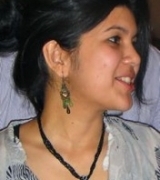 Suparna Choudhury, PhD, Assistant Professor, Division of Social and Transcultural Psychiatry; Co-Director, Culture, Mind, and Brain Program, McGill University
Suparna Choudhury, PhD, Assistant Professor, Division of Social and Transcultural Psychiatry; Co-Director, Culture, Mind, and Brain Program, McGill University
Suparna Choudhury is an Assistant Professor at the Division of Social & Transcultural Psychiatry, McGill University, Co-director of the Culture, Mind, and Brain Program, McGill University, and an Investigator at the Lady Davis Institute for Medical Research. She did her doctoral research in cognitive neuroscience at University College London, postdoctoral research in transcultural psychiatry at McGill and most recently directed an interdisciplinary research program on critical neuroscience and the developing brain at the Max Planck Institute for History of Science in Berlin. Her current work investigates the production and dissemination of biomedical knowledge – in particular cognitive neuroscience – that shapes the ways in which researchers, clinicians, patients and laypeople understand themselves, their mental health and their illness experiences.
More info at https://www.mcgill.ca/tcpsych/faculty/suparnachoudhury
Laurette Dubé, PhD, Professor, Marketing; James McGill Chair of Consumer and Lifestyle Psychology and Marketing; Chair and Scientific Director, McGill Centre for the Convergence of Health and Economics
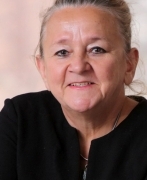 Laurette Dubé, PhD, Professor, Marketing; James McGill Chair of Consumer and Lifestyle Psychology and Marketing; Chair and Scientific Director, McGill Centre for the Convergence of Health and Economics
Laurette Dubé, PhD, Professor, Marketing; James McGill Chair of Consumer and Lifestyle Psychology and Marketing; Chair and Scientific Director, McGill Centre for the Convergence of Health and Economics
Originally trained as a nutritionist, with graduate degrees in finances (MBA), marketing (MPS), and behavioral decision making/consumer psychology (PhD), Laurette Dubé is Full Professor and holds the James McGill Chair of consumer and lifestyle psychology and marketing at the Desautels Faculty of Management of McGill University. Dr. Dubé’s lifetime research interest bears on the study of affects, behavioral economics, and neurobehavioral processes underlying consumption, lifestyle, and health behavior. Her translational research examines how such knowledge can inspire more effective behavioral change and ecosystem transformation.
Dr. Dubé is also the founding chair and scientific director of the McGill Center for the Convergence of Health and Economics (MCCHE), a unique initiative to push the boundaries of disciplinary and complexity sciences to help individuals, communities, businesses, social enterprises, and governments to tackle, better than has been possible thus far, the most pressing societal and economic problems facing the world that lies at the nexus between agriculture, health and wealth production, consumption and distribution.
Maria Gendron, PhD, Assistant Professor, Department of Psychology, Yale University
 Maria Gendron, PhD, Assistant Professor, Department of Psychology, Yale University
Maria Gendron, PhD, Assistant Professor, Department of Psychology, Yale University
Emotions sit at an important nexus in psychological science: they color our experiences of the world, drive our behavior, are critical for human bonding and relationships, and impact health and wellbeing. Yet emotions manifest in widely different forms across cultures, contexts, and individuals. My lab focuses on describing and unpacking these sources of diversity. Ongoing work focuses on the dynamic influences of social, cognitive and cultural processes on emotional experience and perception. This research program is motivated by the proposal that emotional phenomena emerge from multiple, interacting, domain-general systems, including the functioning of the conceptual/semantic system. We adopt a multidisciplinary approach, drawing core concepts from social- cultural psychology and affective neuroscience, using methods ranging from standard laboratory experiments, ambulatory data collection that bridges world and lab, and cross-cultural fieldwork.
More info at https://psychology.yale.edu/people/maria-gendron
Ian Gold, PhD, Professor, Department of Philosophy, McGill University
 Ian Gold, PhD, PhD, Professor, Department of Philosophy, McGill University
Ian Gold, PhD, PhD, Professor, Department of Philosophy, McGill University
Ian Gold is the Canada Research Chair in Philosophy & Psychiatry at McGill University in Montreal. He completed a Ph.D. in Philosophy at Princeton University and did postdoctoral training at the Australian National University in Canberra. From 2000 to 2006 he was on the faculty of the School of Philosophy & Bioethics at Monash University in Melbourne and returned to McGill in 2006. His research focusses on the theory of delusion in psychiatric and neurological illness and on reductionism in psychiatry and neuroscience. He is the author of research articles in such journals as Behavioral and Brain Sciences, Mind and Language, Consciousness and Cognition, The Canadian Journal of Psychiatry, World Psychiatry, Transcultural Psychiatry, Philosophy, Psychiatry, & Psychology, and Cognitive Neuropsychiatry. No Mind is an Island, a book co-written with Joel Gold, is due to appear in 2012.
Suzanne King, PhD, Professor, Department of Psychiatry, McGill University
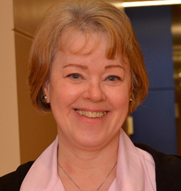 Suzanne King, PhD, Professor, Department of Psychiatry, McGill University
Suzanne King, PhD, Professor, Department of Psychiatry, McGill University
Suzanne King, Ph.D. is Professor of Psychiatry at McGill University as well as a principle investigator at the McGill-affiliated Douglas Mental Health University Institute, both in Montreal, Canada. After graduate training in psychology and educational research in Virginia, she conducted post-doctoral research at the Douglas, studying the family dynamics of people with schizophrenia. Her results led to the study of risk factors for mental illness, and then of prenatal maternal stress in particular. She is currently running five studies of children exposed to natural disasters in utero in order to understand the nature and mechanisms of effects of prenatal stress.
Laurence, Kirmayer, MD, FRCPC, FCAHS, FRSC, Division of Transcultural Psychiatry, McGill University
 Laurence J. Kirmayer, MD, FRCPC, FCAHS, FRSC, James McGill Professor and Director, Division of Social and Transcultural Psychiatry, Department of Psychiatry, McGill University; Co-Director, Culture, Mind and Brain Program, McGill University
Laurence J. Kirmayer, MD, FRCPC, FCAHS, FRSC, James McGill Professor and Director, Division of Social and Transcultural Psychiatry, Department of Psychiatry, McGill University; Co-Director, Culture, Mind and Brain Program, McGill University
Laurence J. Kirmayer, MD, FRCPC, FCAHS, FRSC is James McGill Professor and Director, Division of Social and Transcultural Psychiatry, Department of Psychiatry, McGill University. He is Editor-in-Chief of Transcultural Psychiatry, and Director of the Culture & Mental Health Research Unit at the Institute of Community and Family Psychiatry, Jewish General Hospital in Montreal, where he conducts research on culturally responsive mental health services for immigrants and refugees, the mental health of Indigenous peoples, and the philosophy of psychiatry. He founded and directs the annual Summer Program and Advanced Study Institute in Cultural Psychiatry at McGill. He also founded and directs the Network for Aboriginal Mental Health Research. His past research includes studies on cultural consultation, pathways and barriers to mental health care for immigrants and refugees, somatization in primary care, cultural concepts of mental health and illness in Inuit communities, risk and protective factors for suicide among Inuit youth, and resilience among Indigenous peoples. Current projects include: mental health promotion for Indigenous youth; the integration of ethnography and neuroscience in global mental health; and models of mental health services for multicultural societies.
More info at https://www.mcgill.ca/tcpsych/faculty/laurencekirmayer
Shinobu Kitayama , PhD, Social Psychology Area Chair; Robert B. Zajonc Collegiate Professor of Psychology; Director of the Culture & Cognition Program, University of Michigan
 Shinobu Kitayama , PhD, Social Psychology Area Chair; Robert B. Zajonc Collegiate Professor of Psychology; Director of the Culture & Cognition Program, University of Michigan
Shinobu Kitayama , PhD, Social Psychology Area Chair; Robert B. Zajonc Collegiate Professor of Psychology; Director of the Culture & Cognition Program, University of Michigan
My research revolves around cultural differences and similarities in a variety of mental processes such as self, emotion and cognition. I have focused on comparing people from Asian countries such as japan, the Philippines and China with Americans.
More info at https://lsa.umich.edu/psych/people/faculty/kitayama.html
Hakwan Lau, PhD, Principal Investigator, State Key Laboratory of Brain and Cognitive Sciences, University of Hong Kong; Professor, Department of Psychology (Cognitive & Behavioral Neuroscience) & Brain Research Institute, UCLA
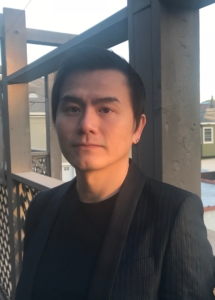 Hakwan Lau, PhD, Principal Investigator, State Key Laboratory of Brain and Cognitive Sciences, University of Hong Kong; Professor, Department of Psychology (Cognitive & Behavioral Neuroscience) & Brain Research Institute, UCLA
Hakwan Lau, PhD, Principal Investigator, State Key Laboratory of Brain and Cognitive Sciences, University of Hong Kong; Professor, Department of Psychology (Cognitive & Behavioral Neuroscience) & Brain Research Institute, UCLA
Hakwan Lau was born and raised in Hong Kong, where he studied philosophy. After finishing his doctorate at Oxford in cognitive neuroscience, he worked at University College London & Columbia University, before moving to UCLA where he is currently a tenured full professor. For more details about his research see his lab webpage https://sites.google.com/
Marie-France Marin, PhD, Assistant Research Professor, Institute universitaire en santé mentale de Montréal, Université de Montréal
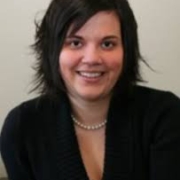 Marie-France Marin, PhD, Assistant Research Professor, Institute universitaire en santé mentale de Montréal, Université de Montréal
Marie-France Marin, PhD, Assistant Research Professor, Institute universitaire en santé mentale de Montréal, Université de Montréal
Marie-France Marin’s research aims to better understand the intergenerational transmission of fear, through vicarious learning. Dr. Marin wants to study this phenomenon in children of parents suffering from post-traumatic stress disorder or anxiety disorders, in order to identify mechanisms through which a heightened vulnerability to psychopathology could be transmitted. Her work aims to better understand factors influencing the emotional development, with a particular focus of fear and fear regulation. This could ultimately lead to the optimization of preventive interventions in children of at-risk families. To do so, Dr. Marin uses fear conditioning paradigms as well as psychophysiological measures (skin conductance responses, heart rate, heart rate variability, electromyography of facial muscles).
Dr. Marin is also interested in examining the impact of stress and stress hormones on fear extinction. By using psychoneuroendocrinology protocols, she wants to better understand conditions in which stress and stress hormones can facilitate or impair fear extinction learning and consolidation, both in laboratory and therapy settings.
More info at http://www.iusmm.ca/research/researchers-list/marin-marie-france-1.html
Michael Meaney, PhD, FRSC, C.Q., C.M., Co-Scientific Director, Ludmer Centre for Neuroinformatics and Mental Health; Researcher, Douglas Institute; Director, Sackler Program for Epigenetics & Psychobiology; James McGill Professor, Departments of Psychiatry and Neurology and Neurosurgery, McGill University
 Michael Meaney, PhD, FRSC, C.Q., C.M., Co-Scientific Director, Ludmer Centre for Neuroinformatics and Mental Health; Researcher, Douglas Institute; Director, Sackler Program for Epigenetics & Psychobiology; James McGill Professor, Departments of Psychiatry and Neurology and Neurosurgery, McGill University
Michael Meaney, PhD, FRSC, C.Q., C.M., Co-Scientific Director, Ludmer Centre for Neuroinformatics and Mental Health; Researcher, Douglas Institute; Director, Sackler Program for Epigenetics & Psychobiology; James McGill Professor, Departments of Psychiatry and Neurology and Neurosurgery, McGill University
Michael J Meaney is a James McGill Professor of Medicine at Douglas Mental health University Institute of McGill University. He is the Director of the Maternal Adversity, Vulnerability and Neurodevelopment Project. Meaney also joined the Singapore Institute for Clinical Sciences in 2008 as a Senior Investigator and leads the Integrative Neuroscience Program. Meaney was educated at Loyola College of Montreal and received his PhD from Concordia University (Montreal) with post-doctoral training in Cell and Molecular Neurobiology at The Rockefeller University. Meaney’s primary research interest is that of the stable effects of early experience on gene expression and development, focusing on the influence of variations in maternal care. These studies have led to the discovery of novel epigenetic mechanisms for the influence of early experience. Meaney’s research is multidisciplinary and includes studies of behaviour and physiology, to molecular biology and genetics. He has authored over 375 journal articles. Graduates from Meaney’s lab holds faculty appointments across North America, Asia and Europe, including Columbia University, Queen’s University, University of California at Berkley, University of British Columbia, University of Michigan, University of Pennsylvania, the University of Toronto, INSERM (France) and the RIKEN Institute of Japan.
More info at https://douglas.research.mcgill.ca/michael-meaney
Amir Raz, PhD, ABPH, Canada Research Chair in the Cognitive Neuroscience of Attention, Department of Psychiatry, McGill University and SMBD Jewish General Hospital
 Amir Raz, PhD, ABPH, Canada Research Chair in the Cognitive Neuroscience of Attention, Department of Psychiatry, McGill University and SMBD Jewish General Hospital
Amir Raz, PhD, ABPH, Canada Research Chair in the Cognitive Neuroscience of Attention, Department of Psychiatry, McGill University and SMBD Jewish General Hospital
Amir Raz, PhD, ABPH, is Canada Research Chair in the Cognitive Neuroscience of Attention at both the Department of Psychiatry at McGill University and the SMBD Jewish General Hospital. He received his PhD in computation and information processing in the brain from the Hebrew University of Jerusalem, Israel. He went on to be a postdoctoral fellow in the laboratory of Michael I. Posner at the Sackler Institute for Developmental Psychobiology of the Weill Medical College of Cornell University. He was then appointed to the position of Assistant Professor at Cornell University and subsequently at Columbia University in the City of New York.
Michael Russell, PhD, Research Associate, The Methodology Center; Assistant Professor, Department of Biobehavioral Health, Pennsylvania State University
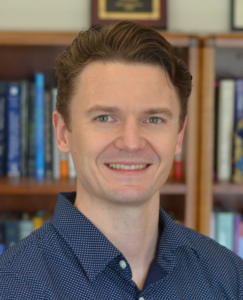 I specialize in the collection and analysis of ecological momentary assessment (EMA) and wearable device data. My specific research interests include understanding the development and dynamics of problem behavior, substance use, and emotion regulation using longitudinal designs, ambulatory assessment methodologies and innovative statistical methods such as time-varying effect modeling (TVEM) and multilevel modeling approaches. I collaborate with Stephanie Lanza Joshua Smyth, Jennifer Maggs, H. Harrington Cleveland, and David Vandenbergh on this work.
I specialize in the collection and analysis of ecological momentary assessment (EMA) and wearable device data. My specific research interests include understanding the development and dynamics of problem behavior, substance use, and emotion regulation using longitudinal designs, ambulatory assessment methodologies and innovative statistical methods such as time-varying effect modeling (TVEM) and multilevel modeling approaches. I collaborate with Stephanie Lanza Joshua Smyth, Jennifer Maggs, H. Harrington Cleveland, and David Vandenbergh on this work.
https://methodology.psu.edu/people/mrussell
Jeffrey G. Snodgrass, PhD, Professor, Department of Anthropology, Colorado State University
 Jeffrey G. Snodgrass, PhD, Professor, Department of Anthropology, Colorado State University
Jeffrey G. Snodgrass, PhD, Professor, Department of Anthropology, Colorado State University
I am a critical psychiatric anthropologist, who investigates the social foundations of mental well-being and the bio-psycho-cultural therapeutics of ritual and play. I am especially interested to understand how human health and healing processes function in natural and (technologically) built environments experiencing dramatic change and high risk and uncertainty. My research suggests that local therapies and sources of health resilience are especially important in such contexts and as such should be incorporated more fully into the global mental health agenda.
I direct the Ethnographic Research and Teaching Lab (ERTL), which gets students involved in my ongoing collaborative research. In my lab, I merge research and teaching in ways that aim to move the field of cultural anthropology beyond the “lone ethnographer” approach (see my recent Nov. 2016 contribution to the Annals of Anthropological Practice).
More info at https://anthropology.colostate.edu/author/jsnodgra/
Kathy Trang, MA, Doctoral Candidate, Laboratory for Comparative Human Biology, Department of Anthropology, Emory University; UJMT NIH Fogarty Global Health Fellow to Vietnam; PHRMA Foundation Health Outcomes Fellow; Mozilla Open Leader – Coding the Mind
 Kathy Trang, MA, Doctoral Candidate, Laboratory for Comparative Human Biology, Department of Anthropology, Emory University; UJMT NIH Fogarty Global Health Fellow to Vietnam; PHRMA Foundation Health Outcomes Fellow; Mozilla Open Leader – Coding the Mind
Kathy Trang, MA, Doctoral Candidate, Laboratory for Comparative Human Biology, Department of Anthropology, Emory University; UJMT NIH Fogarty Global Health Fellow to Vietnam; PHRMA Foundation Health Outcomes Fellow; Mozilla Open Leader – Coding the Mind
I am a fourth year doctoral student in biological anthropology. My research examines the mechanisms by which HIV interacts with PTSD symptomatology and neurobiology among Vietnamese young men who have sex with men, using locally adapted measures of mental health and robust biological measures of stress reactivity both within and outside of the clinic. In illustrating these biosocial dynamics of trauma, my work aims to identify the where-when-whom of structural and psychosocial vulnerability.
More info at http://anthropology.emory.edu/home/people/graduate-students/trang-kathy.html
Samuel Veissière, PhD, Assistant Professor, Division of Social and Transcultural Psychiatry, Department of Psychiatry; Co-Director, Culture, Mind, and Brain Program, McGill University
 Samuel Veissière, PhD, Assistant Professor, Division of Social and Transcultural Psychiatry, Department of Psychiatry; Co-Director, Culture, Mind, and Brain Program, McGill University
Samuel Veissière, PhD, Assistant Professor, Division of Social and Transcultural Psychiatry, Department of Psychiatry; Co-Director, Culture, Mind, and Brain Program, McGill University
An anthropologist and cognitive scientist by training, Samuel Veissière is Assistant Professor of Psychiatry, Associate member in the Department of Anthropology, and co-director of the Culture, Mind, and Brain program at McGill University. He specializes in social and cultural dimensions of cognition, attention, and mental health from evolutionary and ecological (niche construction) perspectives. His current research spans various topics from cultural factors in hypnosis, suggestion, and placebo therapeutics, hyper-sociality in smartphone addiction, variational (free-energy) approaches to the evolution of cognition and culture, and agent-based modeling of joint-intentionality and complex social processes. More info at https://www.mcgill.ca/tcpsych/faculty/samuel-paul-louis-veissiere
Dennis Wendt, PhD, Assistant Professor, Department of Educational and Counselling Psychology, McGill University
 Dennis C. Wendt is an Assistant Professor with the Department of Educational and Counselling Psychology at McGill University. He has conducted research with Indigenous communities in the United States and Canada since 2009. He completed his PhD in Clinical Psychology at the University of Michigan in 2015 (where he was mentored by Joseph Gone). He then completed a postdoctoral research fellowship with the Alcohol and Drug Abuse Institute at the University of Washington in Seattle (mentored by Dennis Donovan). Dr. Wendt’s research focuses on partnering with Indigenous communities in exploring, developing, and evaluating culturally relevant interventions pertaining to mental health, substance use, and community wellness. He is currently working on collaborative projects with Indigenous communities in Washington state and Quebec concerning culturally-centered and holistic substance use disorder prevention and treatment.
Dennis C. Wendt is an Assistant Professor with the Department of Educational and Counselling Psychology at McGill University. He has conducted research with Indigenous communities in the United States and Canada since 2009. He completed his PhD in Clinical Psychology at the University of Michigan in 2015 (where he was mentored by Joseph Gone). He then completed a postdoctoral research fellowship with the Alcohol and Drug Abuse Institute at the University of Washington in Seattle (mentored by Dennis Donovan). Dr. Wendt’s research focuses on partnering with Indigenous communities in exploring, developing, and evaluating culturally relevant interventions pertaining to mental health, substance use, and community wellness. He is currently working on collaborative projects with Indigenous communities in Washington state and Quebec concerning culturally-centered and holistic substance use disorder prevention and treatment.
More information at https://www.mcgill.ca/edu-ecp/dennis-wendt
Carol Worthman, PhD, Samuel Candler Dobbs Professor of Anthropology, Emory University
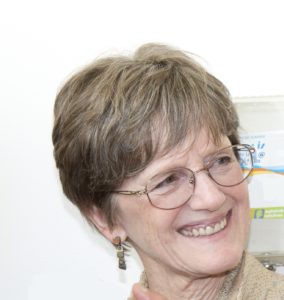 Carol Worthman, PhD, Samuel Candler Dobbs Professor of Anthropology, Emory University
Carol Worthman, PhD, Samuel Candler Dobbs Professor of Anthropology, Emory University
Carol M. Worthman is a biological and medical anthropologist with training in endocrinology and neuroscience. Her work deploys a biocultural approach in comparative interdisciplinary research on human development and pathways to differential mental and physical health. She has conducted cross-cultural biosocial and biocultural research in thirteen countries, as well as in rural, urban, and semi-urban areas of the United States. Since 2007, she also leads the neuroscience component of the Emory-Tibet Science Initiative.
